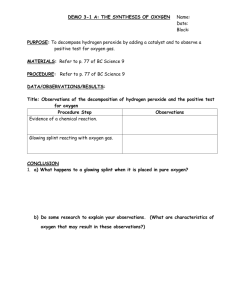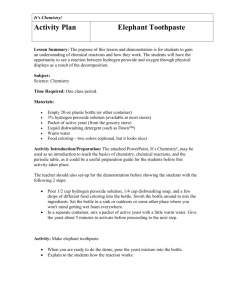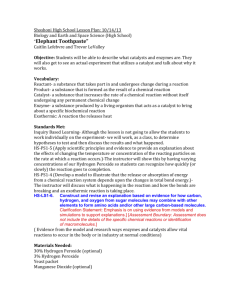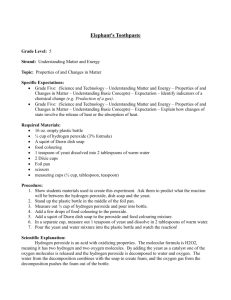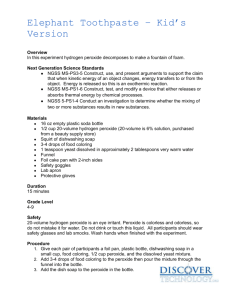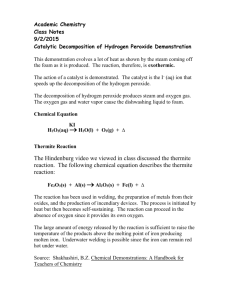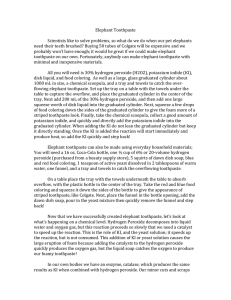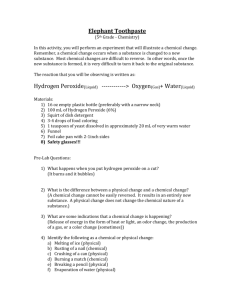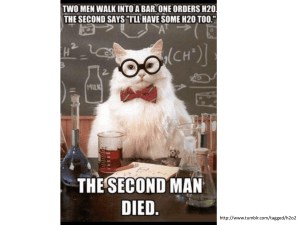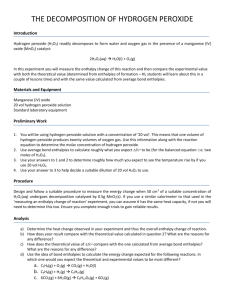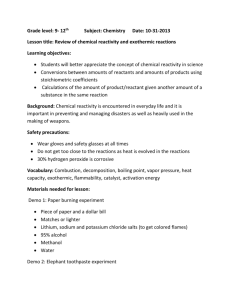Elephant Toothpaste: Chemical Reactions & Catalysts
advertisement
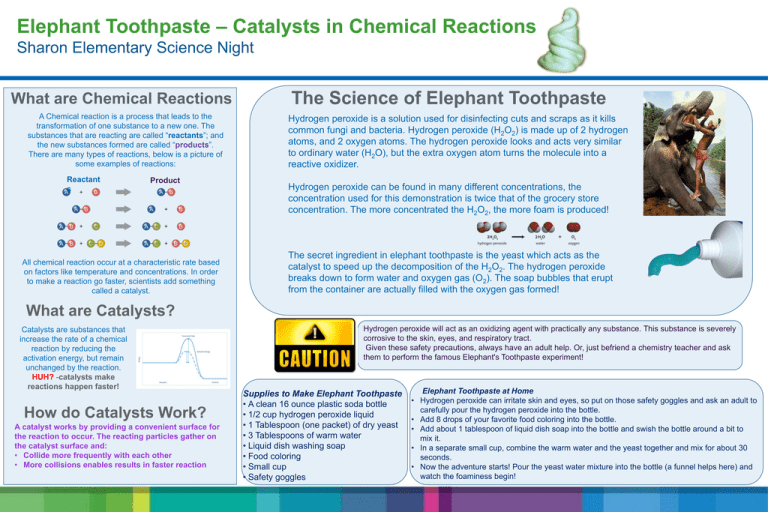
Elephant Toothpaste – Catalysts in Chemical Reactions Sharon Elementary Science Night What are Chemical Reactions A Chemical reaction is a process that leads to the transformation of one substance to a new one. The substances that are reacting are called “reactants”; and the new substances formed are called “products”. There are many types of reactions, below is a picture of some examples of reactions: Reactant s Product All chemical reaction occur at a characteristic rate based on factors like temperature and concentrations. In order to make a reaction go faster, scientists add something called a catalyst. The Science of Elephant Toothpaste Hydrogen peroxide is a solution used for disinfecting cuts and scraps as it kills common fungi and bacteria. Hydrogen peroxide (H2O2) is made up of 2 hydrogen atoms, and 2 oxygen atoms. The hydrogen peroxide looks and acts very similar to ordinary water (H2O), but the extra oxygen atom turns the molecule into a reactive oxidizer. Hydrogen peroxide can be found in many different concentrations, the concentration used for this demonstration is twice that of the grocery store concentration. The more concentrated the H2O2, the more foam is produced! The secret ingredient in elephant toothpaste is the yeast which acts as the catalyst to speed up the decomposition of the H2O2. The hydrogen peroxide breaks down to form water and oxygen gas (O2). The soap bubbles that erupt from the container are actually filled with the oxygen gas formed! What are Catalysts? Catalysts are substances that increase the rate of a chemical reaction by reducing the activation energy, but remain unchanged by the reaction. HUH? -catalysts make reactions happen faster! How do Catalysts Work? A catalyst works by providing a convenient surface for the reaction to occur. The reacting particles gather on the catalyst surface and: • Collide more frequently with each other • More collisions enables results in faster reaction Hydrogen peroxide will act as an oxidizing agent with practically any substance. This substance is severely corrosive to the skin, eyes, and respiratory tract. Given these safety precautions, always have an adult help. Or, just befriend a chemistry teacher and ask them to perform the famous Elephant's Toothpaste experiment! Supplies to Make Elephant Toothpaste • A clean 16 ounce plastic soda bottle • 1/2 cup hydrogen peroxide liquid • 1 Tablespoon (one packet) of dry yeast • 3 Tablespoons of warm water • Liquid dish washing soap • Food coloring • Small cup • Safety goggles • • • • • Elephant Toothpaste at Home Hydrogen peroxide can irritate skin and eyes, so put on those safety goggles and ask an adult to carefully pour the hydrogen peroxide into the bottle. Add 8 drops of your favorite food coloring into the bottle. Add about 1 tablespoon of liquid dish soap into the bottle and swish the bottle around a bit to mix it. In a separate small cup, combine the warm water and the yeast together and mix for about 30 seconds. Now the adventure starts! Pour the yeast water mixture into the bottle (a funnel helps here) and watch the foaminess begin!

